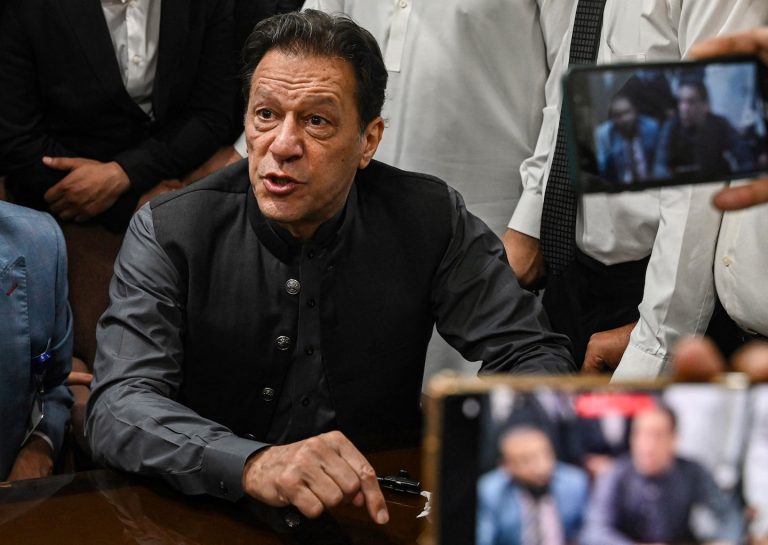Khan has been in prison since last August, when the court convicted him of corruption and sentenced him to three years in prison. Although this sentence was suspended, he remained in prison where he faced numerous other charges, including revealing official secrets, which could have resulted in the death penalty.
The latest accusations centered on Khan's publication in early 2022 of details of a secret diplomatic cable that the former prime minister said proved that the United States was behind the efforts to oust him.
The court's decision on Tuesday followed what Khan's party described as a “sham” trial. His party, the Pakistan Tehreek-e-Insaf, said it would appeal the ruling. It had previously accused the Pakistani establishment of deliberately hastening the ruling to coincide with the most intense phase of the electoral campaign before the general elections scheduled for next week.
With Khan banned from running for public office, former Prime Minister Nawaz Sharif – who was once ousted in a military coup – is the most likely to be Pakistan's next leader. He returned in October from his self-imposed exile in London after rebuilding trust with the army.
On social media, officials linked to Sharif welcomed Khan's conviction on Tuesday. But while the Pakistani establishment has dismantled Khan's party since his ouster in 2022, that does not appear to have affected his broad popularity.
The Pakistan Tehreek-e-Insaf party says it faced several restrictions during its campaign, including a court order to remove its distinctive cricket bat symbol from ballot papers.
The interim Pakistani government has defended these measures as legal and necessary to maintain stability. They point to accusations that Khan's party deliberately stirred up tensions against the military when officers first tried to arrest him early last year, sparking violent unrest.
Although Tuesday's court ruling represents another setback for Khan, it is not surprising, said Sarwar Bari, a Pakistani political science professor.
“It was inevitable that this would happen, given what the PTI movement has witnessed over the past two years,” Barry said. But he warned that instead of deterring Khan's supporters from voting for the PTI next week, a 10-year prison sentence could spark unpredictable tensions.
“If the PTI can translate anger and anger into votes on February 8, there could be a surprise in the future,” he said.
Nowak reported from Kabul. Haq Nawaz Khan in Peshawar, Pakistan, contributed to this report.

